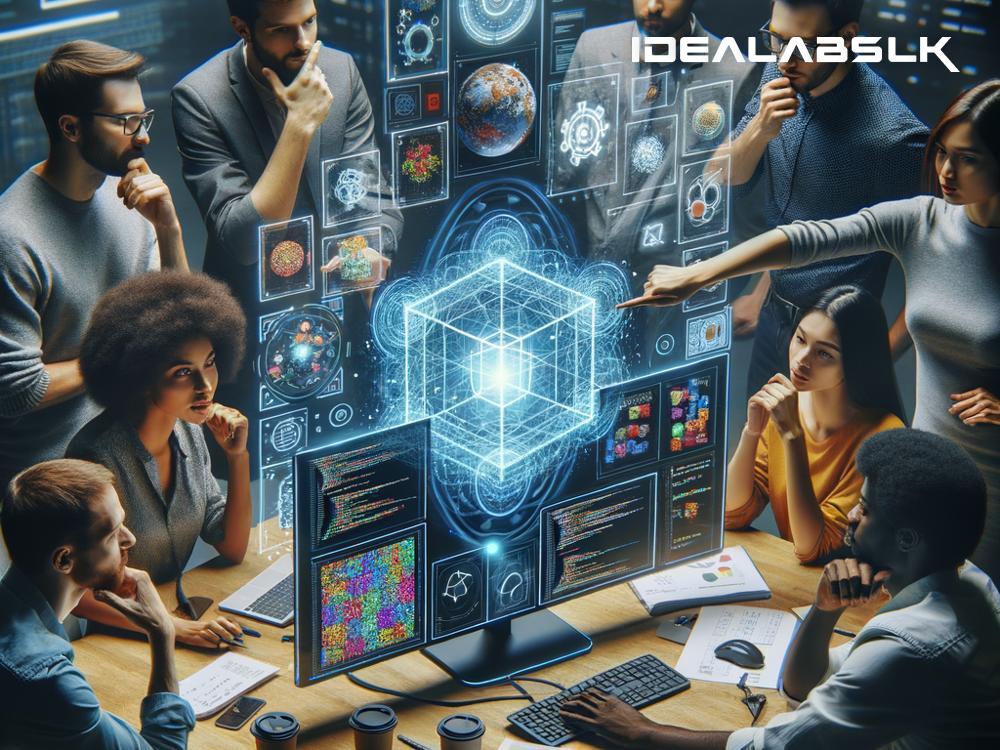How AI-Powered Game Design Will Revolutionize Puzzle Games Like The Talos Principle 2 in 2025
In recent years, artificial intelligence (AI) has been making waves across various sectors, but one area where its impact is set to blow our collective minds is in game design, especially puzzle games. With 2025 just around the corner, AI-powered game design is teeming with potential to revolutionize how we experience games like The Talos Principle 2. Let's dive into this intriguing juncture of AI and gaming and explore how it's all set to change the puzzle game landscape.
Personalized Puzzles: A New Era of Gaming
One of the most significant ways AI is transforming puzzle games is by introducing personalized puzzles. Imagine playing a game like The Talos Principle 2, where the puzzles adapt in real-time to your playstyle. If you breeze through logic puzzles but struggle with spatial reasoning challenges, the game can dynamically adjust, offering you a balanced mix of puzzles that cater to your strengths while gently pushing your boundaries.
This personalization doesn't just stop at difficulty levels. AI can analyze how you interact with the game environment, what paths you choose, and where you spend most of your time. Using this data, it can create puzzles that encourage exploration of less visited areas or suggest solutions that align with your problem-solving approach. By 2025, this level of personalization will likely transform puzzle games into highly individualized experiences, making every playthrough unique.
Enhanced Storytelling through AI
The Talos Principle is renowned for its thought-provoking narrative, intertwining philosophical questions with its puzzles. AI can take this blend of storytelling and puzzle-solving to new heights. Imagine a game that crafts its narrative based on the decisions you make or the puzzles you solve in certain ways. AI can generate storylines that feel incredibly personal and impactful, making you the true architect of the game's narrative.
By 2025, we could see games using AI to create dynamic story arcs that branch and converge based on player actions, ensuring that the storytelling is as engaging and challenging as the puzzles themselves. This could lead to a highly immersive experience where the story and gameplay are inextricably linked, each enhancing the other.
Evolving Game Environments
AI's potential isn't limited to puzzles and narratives; it also extends to the game environment itself. Imagine an ever-changing world within The Talos Principle 2, where the environment adapts and evolves based on your gameplay. Paths might shift, new areas could unlock, or previously accessible zones may become more challenging to navigate, all driven by AI's understanding of your progress and playstyle.
This dynamic environment could serve as an additional layer of puzzles, where players need to not just solve static challenges but also understand and adapt to a constantly evolving game world. By 2025, these AI-driven game environments could become a staple in puzzle games, offering endless replayability and surprises around every corner.
Collaborative AI: Beyond the Game
Looking beyond the single-player experience, AI could revolutionize how we approach collaborative puzzles in games like The Talos Principle 2. Imagine an AI-powered multiplayer mode, where players team up not just with each other but with AI companions designed to complement their playstyle. These AI companions could offer hints, suggest strategies, or even take on roles within the game to help solve complex puzzles that require teamwork.
By 2025, this collaborative AI could foster a new type of multiplayer experience, blending human creativity with AI efficiency to tackle challenges that would be insurmountable alone. It's a thrilling prospect that could redefine cooperative play in puzzle games and beyond.
The Future is Bright (and Brainy)
As we inch closer to 2025, the integration of AI in game design, especially in puzzle games like The Talos Principle 2, heralds a new era of gaming. From personalized puzzles and dynamic storytelling to evolving game environments and collaborative AI, the possibilities are as limitless as they are exciting. AI-powered game design promises not just to revolutionize how we play games but to offer a deeper, more immersive, and personalized experience that will keep us coming back for more. The future of puzzle games is bright indeed—and it's powered by AI.

